guest post courtesy of Kosta Todorov. The views and opinions expressed in this article are those of the guest author and do not necessarily represent the views of Val Heart & Heart Communications Enterprises Inc. Image by PetsFarmhouse
There are dogs, and there are cats and then there are bearded dragons.
We’re talking about household pets that are domesticated for our companionship. The majority of the world’s population loves any four-legged furry friend to have around the house. But those unique few that love bearded dragons, love them for the same reasons – as companions. They make obedient pets, too. You want to make sure that you know all you need to know about a bearded dragon diet to ensure you keep your pet healthy and happy.
The only difference between them and the furry ones are their diets. These guys prefer a bit more of a diverse range of food groups. That includes anything from fruits to insects and vegetables. They keep it healthy. Bearded dragons, often referred to as “beardies”, are one of the most popular creatures to keep in houses. However, it is always important to note that if you’re planning to adopt one, you must keep him in an environment that mimics the outdoors where he would typically live. Some further advice about them can be found on appropriate websites such as this one.
When considering whether to get one, prepare to have it for at least 10 to 15 years, because that’s their lifespan in general. If you have recently adopted one or are planning on getting one but not sure what to buy for it, this article will tap into the most important information to help you make sure he or she is a healthy and happy little pet.
What Food to Give Them – Fruits and Vegetables
As mentioned above, these little creatures like to keep it healthy. Their food choices range from insects such as crickets to an array of fruits and vegetables. So in terms of fruits that they can eat, or prefer to eat, the list includes:
- pears
- most exotic berries (blueberries, strawberries, cranberries, and blackberries)
- olives
- watermelons
- apricots
- papaya
- mango
- figs
- peaches
- guava
- cherries
- prunes
- pineapples (canned are fine)
- mandarins or oranges
- plums
In terms of vegetables, keep it simple by giving items such as:
- broccoli
- artichokes
- zucchini
- okra
- parsnips
- squash
- mustard greens
- Bell peppers
- asparagus
- bok choy
- peeled cucumbers
- arugula
- basil
- dandelion greens
- uncooked artichoke hearts
You can also check for what’s listed on this site: https://www.cuteness.com/article/fruits-can-feed-bearded-dragon
Insects to Give Them
When giving them insects, the most common ones to buy from the pet store will be crickets. However, you can extend this option to include a bunch of other insects such as worms of many kinds:
- super worms
- earthworms
- silkworms
- butter worms
- wax worms
- mealworms
- goliath worms
- red worms
- locusts
- dubia roaches
- black soldier fly larvae
Setting Up Their Living Space
As mentioned above, keeping them in an environment that mimics their natural outdoor one is essential for them to stay healthy and happy. Also to take into consideration is the temperature you keep them in. Typically one would leave them in a room with a humidity level of between 30 to 40% for it to be comfortable for them. The heat levels must not surpass 42 degrees Celsius (107.6 Fahrenheit), while the cold temperatures must not dip below 22 degrees Celsius (71.6 Fahrenheit). Fluorescent UV tube lights often do the trick of keeping the temperature levels optimum.
Because they can grow up to just under 50 cm (19.7 inches), it is important to make sure you have enough room for them in the vivarium to move around. Even if he is still a baby, he will grow, and fast. Also, it’s good to note that the younger ones shed their skin a lot more than the older ones, and in big chunks. Sometimes if you find that they do this too much, consult a specialist.
During the colder seasons, these guys tend to sleep more. Their diet, however, will not change with it, it may just become less. While animals tend to hibernate, in the lizard family this act is known as “brumation”. They still eat, so food must always be left for them. If they stop eating entirely and start to lose weight, check with an expert as well.
In the end, just like you would look after any other pet – with much love and care – you should turn the same respect to these age-old ancient and amazing creatures.
Be sure to leave your comment below!
Enjoyed this article? Here are three more to help you:
Easing Stress for Yourself & Your Pets in Challenging Times

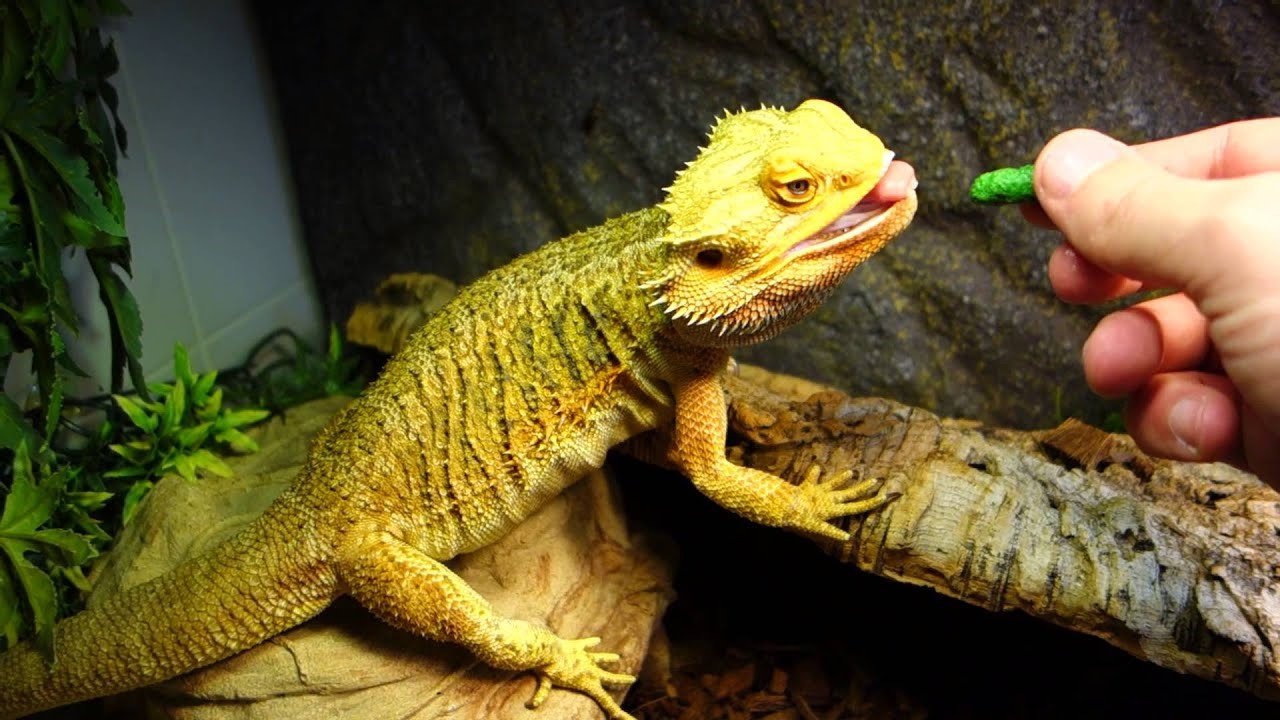
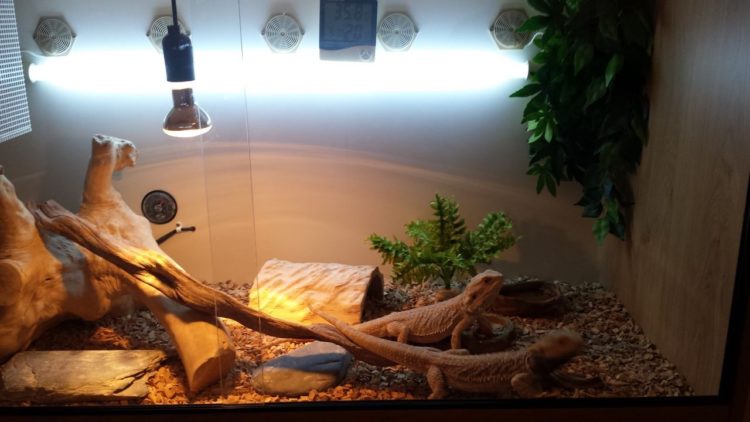

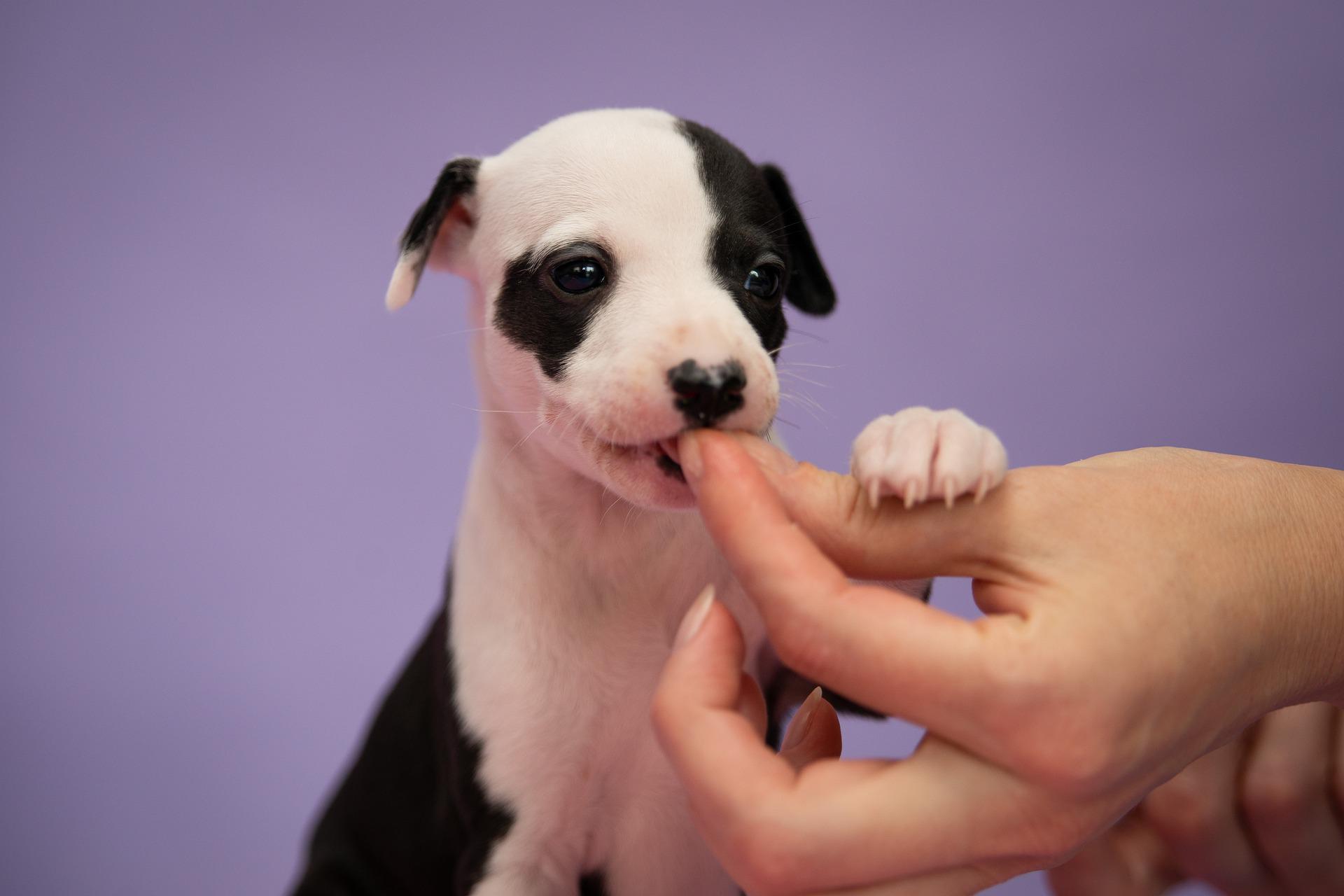
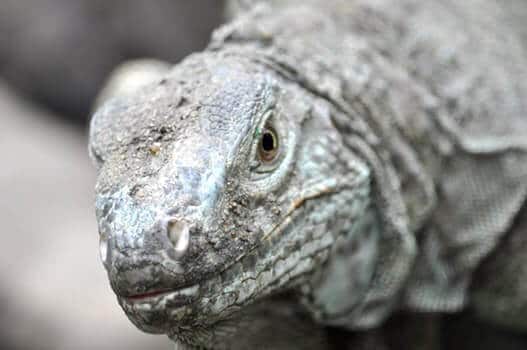
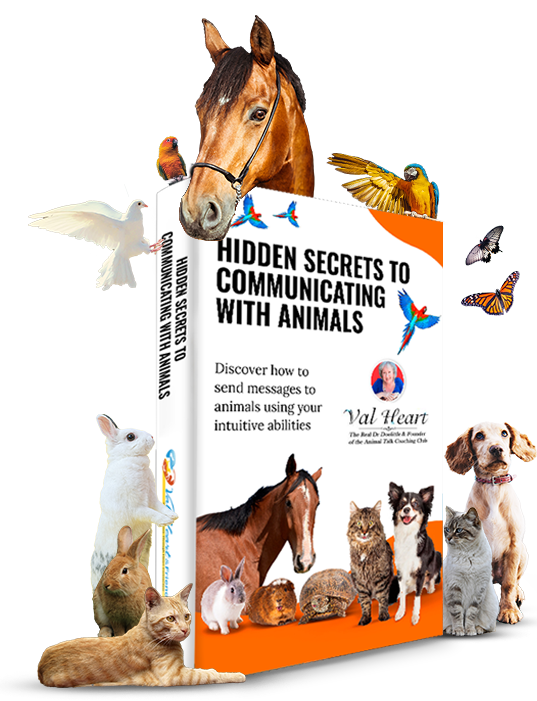
Leave a Reply